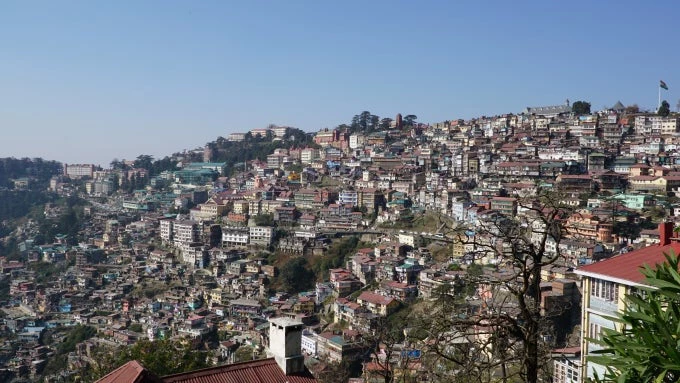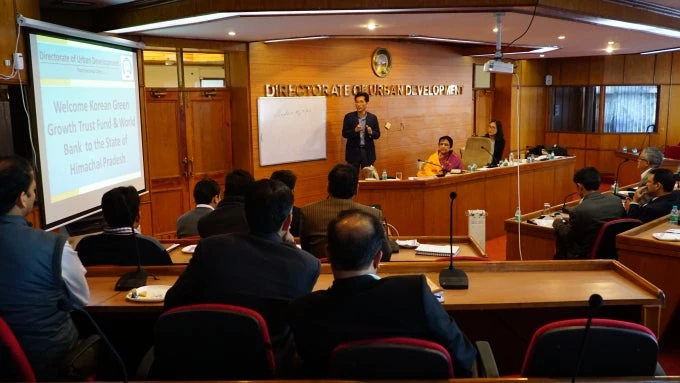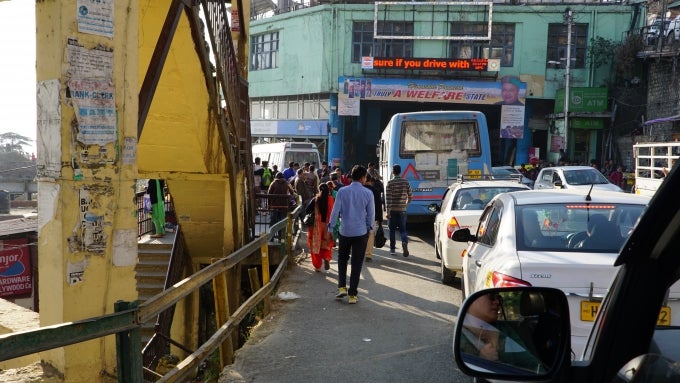
On the streets of Shimla, residents stare at a strange group of visitors. The group looks and acts different from other tourists to this hilly capital of India’s mountain state of Himachal Pradesh.
Not Indian, and definitely not the usual European retirees. Oh, and even stranger, the group starts taking photos of parking lots, trash cans, and the tiny alleys that snake up and down the city.
That was how a group of global experts in a gamut of urban matters appeared to the citizens of Shimla. It was the group’s first day in a town they had never seen, nor ever imagined they would visit.
But here they were - experts at solid waste management, urban parking, public transportation, IT and city planning - at the request of the government of Himachal Pradesh (HP). The state, named after the soaring Himalayas, is seeking to protect its natural heritage by growing in a green and sustainable manner. HP is renowned for its pleasant climes, verdant forests and snow-clad peaks that not only act as a carbon sink for India’s burgeoning economy but also serve as a source of five perennial rivers that sustain the lives of million in the teeming plains below.
The inspiration for the experts’ visit came from the highest levels of the state government. Dr. Shrikant Baldi, the state’s additional chief secretary, had visited Korea to attend a global green growth conference sponsored by the World Bank. There he saw the real-life application of strategies that his government needed to take their own green growth agenda forward.
Strange bedfellows you might think, Korea and Himachal Pradesh? Not in the least! Himachal Pradesh has in recent years successfully used three World Bank Development Policy Loans (DPLs) to devise green and sustainable policies for its key revenue earning sectors. These include hydropower, tourism, and industry, and also cover rural development as the vast majority of the state’s people live in rural areas and depend on natural resources for their livelihoods. The experts’ recent trip was an extension of the Bank’ long-term commitment to the state’s green growth efforts.
Green growth and development are two sides of the same coin

It was a clear Saturday morning and, from the start, the state’s high-level interest was evident. Sudhir Sharma, HP’s Minister of Urban Development emphasized that this knowledge sharing exercise will not only help implant programs, but also give shape to a better tomorrow.
Dr. Shrikant Baldi pointed out that in Korea, green growth and development are not two different things, but are integrated. In HP too, the state’s green growth policies are already bringing economic benefits .
HP officials showcased the advances they had made in natural capital accounting and the management of catchment areas. The Korean urban planning expert, on his part, explained how his country had integrated green policies into the building of smart cities.
The ubiquitous challenges of waste management and transport

The final exchange focused on one of HP’s biggest challenges, its transport system. Especially in the mountainous capital Shimla, which faces a severe lack of roads and parking facilities, officials are seeking long-term and sustainable solutions to the transport problem. Seoul, like most modern cities, has also faced such issues. Its experience of transforming the public transport system to address these needs therefore provided new insights to HP officials.



Join the Conversation